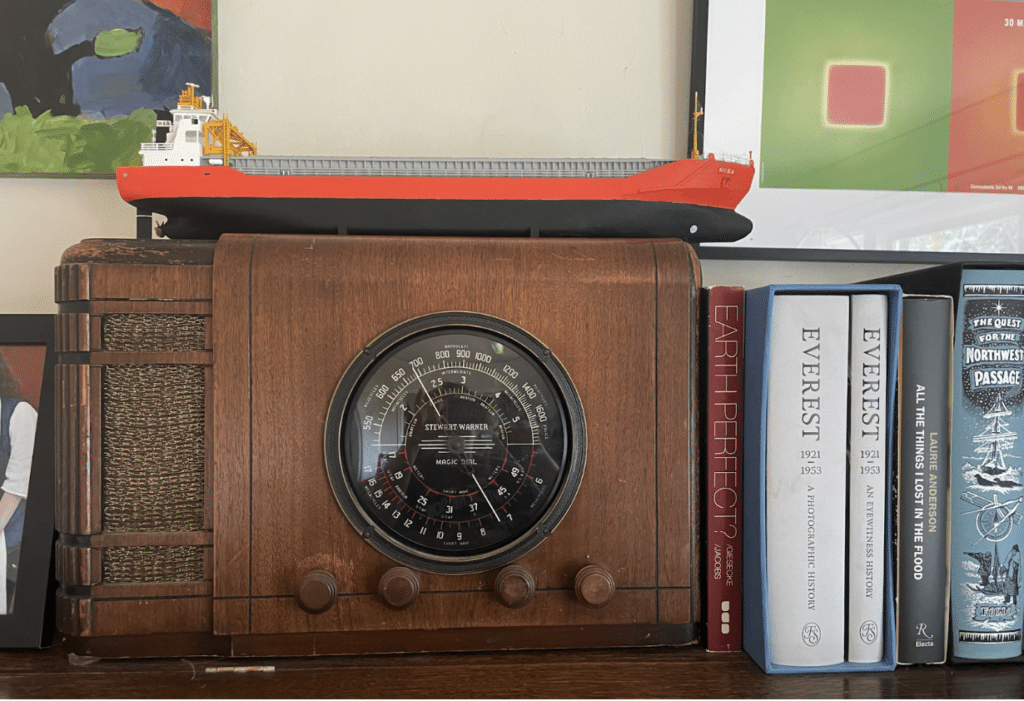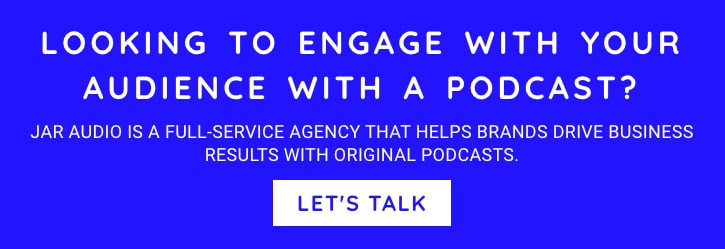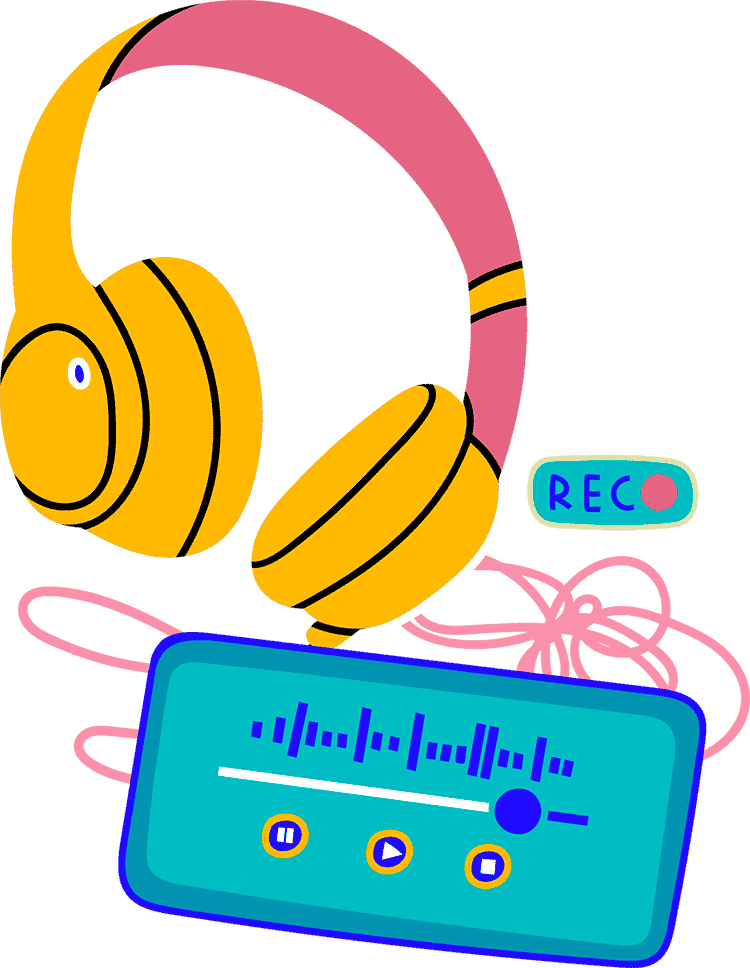Unveiling How the Impact of Audio Storytelling Transforms Listener Engagement and Memory
I grew up in a house where the radio was always on — CBC radio mostly (my parents were big fans of Canadian content). I’m talking 24/7. Morning, noon, and night. I can still sing the theme song of most of the big CBC shows… they are permanently burned in my brain.
You might ask: why was the radio always on in our house?
I asked my mum the same thing years later. She simply said:
I put it on, and I feel like I’m not alone. Having company while you vacuum is nice.
And right there — in those two sentences — my mother identified the main attributes of audio storytelling: connection and mobility.

Connection
There’s something about audio storytelling, be it radio or podcasting, that hits you physically. It could be the literal impact of the sound waves as they travel through the air and encounter your waiting eardrums, or it might be the warmth of the human voice, nature’s most complex instrument. There’s something, too, about the way sound and memory interact. My dad can still recall freezing cold nights growing up on the Canadian prairie, twisting the “magic dial” of his old Stewart Warner radio to tune into shows like The Shadow.
There was always a bit of static at first – then it would come in nice and clear.” With a bit of luck, he could sometimes even locate the Detroit music stations, exposing his big (but sheltered) Canadian ears to the sounds of a whole different world.
The great cellist, Yo-Yo Ma, reflects on the interconnectedness of sound and memory.
He says:
Sound is ephemeral, fleeting, but some sort of a physical manifestation can help you hold on to it longer in time. I’m sure of this; I’ve always thought the sound that you make is just the tip of the iceberg, like the person that you see physically is just the tip of the iceberg as well.
The sound itself IS just the tip of the iceberg.
The real magic lies in the connection between the originator of the sound and the receiver. For my part, I would come home from school — while both my parents were still at work — to make a snack in a kitchen filled with the familiar voices of local radio hosts. Later, if I was up late studying or returning from a night out with friends, I’d sit at the table and listen to the warm sounds of Brave New Waves on CBC Stereo, featuring stories about indie film, comics, literature, and art. These diverse voices inspired me towards a career in the arts. These days, for CBC-loving insomniacs, there’s Tamara Khandaker’s weekly podcast Nothing is Foreign, offering an important connection with stories from around the world.
And of course, since podcasting revolutionized audio storytelling, there are now countless voices to choose from, each bringing you into the intimate orbit of their show, their host, and their story. What’s more, in the internet-era incarnation of my dad’s beloved “magic dial,” you can fine-tune the exact kind of connection you’re looking for. Want to feel close to other people who are struggling with relationships and mental health? Check out Esther Perel’s Where Should We Begin? on Audible. Want to get a sense of how other people deal with personal and professional communication challenges? Maybe try Infernal Communication, hosted by Kyla Rose Sims and brought to you by Staffbase (and JAR Audio). And if, like my dad, you want to connect with characters from classic stories that hearken back to the heyday of radio, try the homespun but delightful Parson’s Nose Radio Theatre Podcasts.
Mobility
The second point my mum made about vacuuming is worth repeating. My mother was not a “natural” housekeeper. Nor am I. I do housework because I have to or else the chaos will consume me — Not because I choose to, nor because I enjoy the finer points of home decor. Think of all the things you do in your daily life that you vaguely resent because they take time away from things you’d rather be doing. Vacuuming is up there in this regard for a lot of people, along with long commutes on the bus, being stuck in crosstown traffic, waiting in the doctor’s office, de-crumbing the toaster, etc. Life is full of these little time-sucks that require your hands but not your brain. In fact, such tasks are best completed when your brain is “otherwise occupied.”
This is where audio storytelling really shines.
Podcasts have the incredible potential to add great depth to your life, simply by stimulating your brain while your hands are busy. If you can learn about the latest insights from the NASA scientist in charge of the James Webb telescope while de-crumbing the toaster, suddenly you start looking forward to the process instead of resenting it. As you go about the humdrum necessities of daily life, you can listen to a podcast that takes you on a virtual journey; a mental escapade to another locale where you get to learn about a corner of the world very different from your own. This, in turn, can influence how you interact with the world around you. For instance, if you cook dinner as you listen to The Armchair Explorer podcast featuring the world’s greatest adventurers telling their best stories from the road, you may find yourself adding a few extra spices to the recipe. Listen to people’s stories of conquering Himalayan peaks while you’re folding mountains of laundry and you may pile those clothes just a little bit higher.
It’s been found that listening to a podcast as you move through a particular location can cause you to view that place in a whole new way. Proof? The last time I walked home from the #14 bus stop at night listening to Whiskey Creek, the untold story of a Halloween night massacre in the woods of Vancouver Island. I’m telling you, my neighbourhood felt different somehow — The shadows seemed deeper.
Audio storytelling is a potent agent for stimulating human emotion, memory, and imagination. Brands, organizations, or anyone aiming to get involved in audio storytelling, need to understand and respect this potential. Podcasts have an impact that transcends the intellectual, entering the realm of the physical, the geographical, and the emotional. This means audio storytelling can cut a deeper swathe into the consciousness of an audience than any other form of storytelling. It can impact how we see the world, and how we see ourselves. Ask yourselves: Does your current marketing strategy have that potential?
5 Key Takeaways on the Impact of Audio Storytelling
- Emotional Connection: Audio storytelling uniquely impacts listeners by creating a strong emotional connection through the human voice and sound, which are closely linked to memory and emotions.
- Physical Experience: The physical impact of sound waves on the body makes audio storytelling a more immersive and visceral experience than many other forms of media.
- Enhanced Memory: The combination of sound and narrative can significantly enhance memory retention, making audio an effective medium for impactful storytelling.
- Versatility and Mobility: Audio storytelling is uniquely versatile and mobile, allowing listeners to engage with content while performing other tasks, thereby integrating seamlessly into daily routines.
- Cultural and Personal Impact: Audio stories have the power to shape personal and cultural perceptions, offering new perspectives and deepening understanding of diverse experiences.

Jen Moss is the Co-Founder and and Chief Creative Officer of JAR Audio. As JAR’s podcast “doula”, collaborating with enterprise brands to bring great podcasts into the world. With a background spanning CBC Radio, Canada’s National Film Board Digital Studio, Vancouver’s Roundhouse Radio and the University of British Columbia, she guides the creation of captivating podcasts at JAR.




